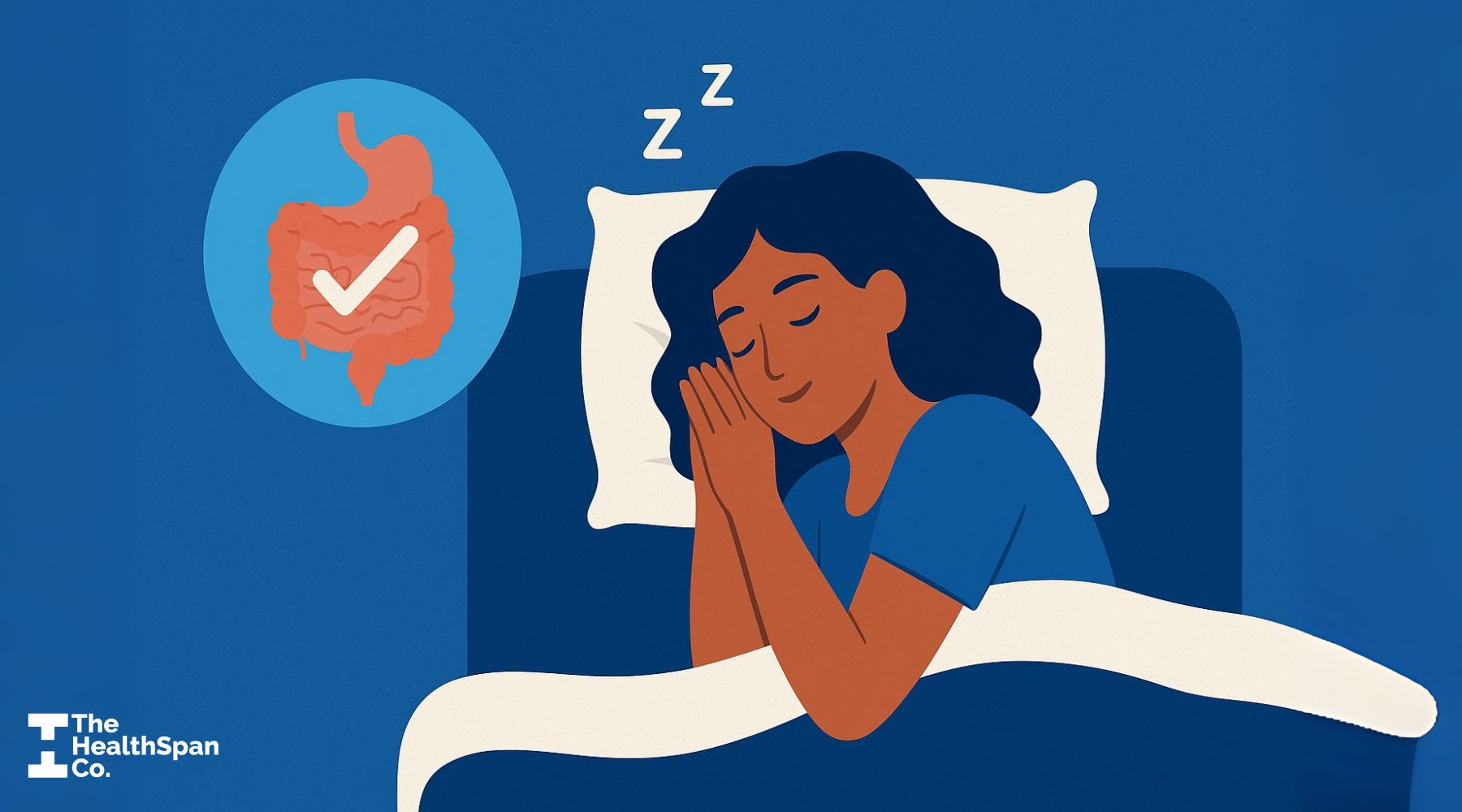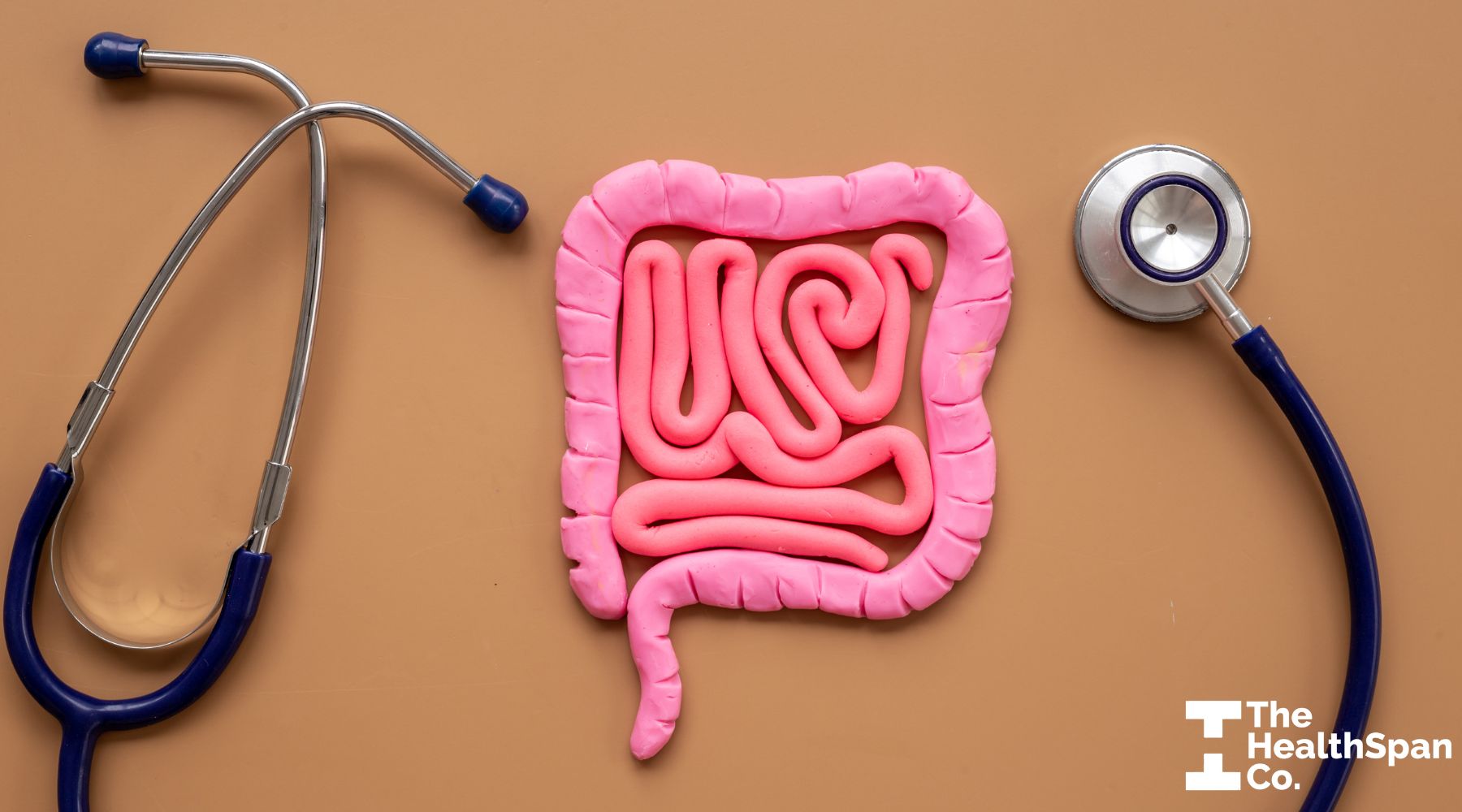Article: The Sleep-Gut Connection: Why Your Digestive Health Depends on Quality Sleep (+ 10 Tips to Fix Both)

The Sleep-Gut Connection: Why Your Digestive Health Depends on Quality Sleep (+ 10 Tips to Fix Both)
Do you lie awake at night with digestive discomfort, or find yourself exhausted after a poor night's sleep followed by gut issues the next day? You're not alone—and more importantly, these problems are intimately connected.
The relationship between sleep and gut health is one of the most fascinating discoveries in modern wellness research. Your digestive system and sleep cycles are so intertwined that poor sleep can trigger gut problems, while digestive issues can sabotage your sleep quality, creating a frustrating cycle that affects your entire well-being.
Understanding this bidirectional relationship is the key to breaking free from both sleep struggles and digestive issues. This comprehensive guide reveals the science behind the sleep-gut connection and provides 10 proven strategies to optimize both simultaneously.
The Science Behind the Sleep-Gut Connection
Your Gut Has Its Own Circadian Rhythm
Just like your brain, your digestive system follows a 24-hour circadian rhythm. This internal clock regulates:
- Digestive enzyme production peaks and valleys throughout the day
- Gut motility patterns that move food through your system
- Beneficial bacteria activity that varies with your sleep-wake cycle
- Hormone release including melatonin and cortisol
When your sleep schedule is disrupted, this entire digestive rhythm gets thrown off balance, leading to bloating, irregular bowel movements, and poor nutrient absorption.
The Gut-Brain Axis: Your Second Brain
Your gut contains over 500 million neurons—more than your spinal cord. This "enteric nervous system" communicates directly with your brain through the vagus nerve, creating a powerful two-way communication highway.
How This Affects Sleep:
- Gut bacteria produce neurotransmitters that influence sleep quality
- Digestive inflammation sends stress signals to the brain
- Poor gut health can trigger anxiety and racing thoughts at bedtime
- Gut discomfort physically prevents comfortable sleep positions
5 Ways Poor Sleep Destroys Your Gut Health
1. Disrupts Your Microbiome Balance
Sleep deprivation dramatically alters your gut bacteria composition. Studies show that even one night of poor sleep can:
- Reduce beneficial bacteria like Bifidobacterium and Lactobacillus
- Increase harmful bacteria that promote inflammation
- Decrease microbial diversity—a key marker of gut health
- Alter bacterial metabolite production that affects mood and energy
2. Increases Intestinal Permeability
Chronic sleep loss weakens your gut lining, leading to "leaky gut syndrome." Poor sleep:
- Reduces mucus production that protects your intestinal wall
- Weakens tight junctions between intestinal cells
- Allows toxins and undigested food to enter your bloodstream
- Triggers systemic inflammation throughout your body
3. Disrupts Digestive Hormone Production
Your gut produces over 20 different hormones that regulate digestion, appetite, and sleep. Sleep deprivation affects:
- Ghrelin and leptin (hunger and satiety hormones)
- Insulin sensitivity and blood sugar regulation
- Cortisol patterns that should naturally decrease at night
- Growth hormone needed for gut lining repair
4. Slows Gut Motility
Sleep is when your digestive system performs maintenance and repair. Without adequate rest:
- Food moves more slowly through your intestines
- Waste products accumulate leading to constipation
- Beneficial bacteria can't properly colonize
- Digestive enzymes aren't produced efficiently
5. Amplifies Stress-Related Gut Issues
Poor sleep increases cortisol and stress hormones that directly damage your digestive system:
- Reduces stomach acid production affecting protein digestion
- Increases inflammation in the gut lining
- Alters gut bacteria in ways that promote anxiety
- Triggers IBS symptoms like cramping and irregular bowel movements
6 Ways Gut Problems Sabotage Your Sleep
1. Uncomfortable Physical Symptoms
Digestive issues create physical discomfort that makes sleep nearly impossible:
- Bloating and gas make lying down uncomfortable
- Acid reflux worsens when lying flat
- Cramping and pain wake you throughout the night
- Urgent bathroom needs disrupt sleep cycles
2. Disrupted Neurotransmitter Production
Your gut produces 90% of your body's serotonin and significant amounts of melatonin. When gut health is poor:
- Serotonin production decreases affecting mood and sleep preparation
- Melatonin synthesis is impaired making it harder to fall asleep
- GABA production suffers reducing your ability to relax
- Dopamine levels fluctuate affecting sleep-wake cycles
3. Systemic Inflammation
Gut inflammation doesn't stay local—it affects your entire body, including your brain:
- Inflammatory cytokines cross the blood-brain barrier
- Brain inflammation disrupts normal sleep patterns
- Stress hormones remain elevated throughout the night
- Body temperature regulation becomes impaired
4. Blood Sugar Instability
Poor gut health affects glucose metabolism, leading to:
- Nighttime blood sugar spikes that cause awakening
- Early morning crashes that disrupt sleep quality
- Increased cortisol in response to glucose fluctuations
- Cravings for stimulants that further disrupt sleep
5. Nutrient Malabsorption
When your gut isn't absorbing nutrients properly, you may develop deficiencies that affect sleep:
- Magnesium deficiency causes muscle tension and restless legs
- B-vitamin deficiencies affect neurotransmitter production
- Vitamin D deficiency disrupts circadian rhythms
- Iron deficiency can cause restless leg syndrome
6. Microbiome-Produced Toxins
Harmful bacteria in an imbalanced gut produce toxins that affect brain function:
- Lipopolysaccharides from bad bacteria cause brain inflammation
- Bacterial metabolites can act as neurotoxins
- Histamine overproduction from certain bacteria causes sleep disruption
- Ammonia buildup affects cognitive function and sleep quality
10 Science-Backed Strategies to Optimize Both Sleep and Gut Health
1. Establish a Consistent Sleep Schedule
Why It Works: Your gut bacteria have their own circadian rhythm that synchronizes with your sleep-wake cycle.
How to Implement:
- Go to bed and wake up at the same time every day (yes, even weekends)
- Aim for 7-9 hours of sleep nightly
- Use blackout curtains and keep your bedroom cool (65-68°F)
- Avoid screens 1 hour before bedtime
2. Create an Evening Gut-Friendly Routine
Why It Works: Preparing your digestive system for rest improves both digestion and sleep quality.
Evening Protocol:
- Finish eating 3 hours before bedtime
- Drink calming herbal tea (chamomile, passionflower, or lemon balm)
- Practice gentle stretching or yoga
- Try deep breathing exercises to activate your parasympathetic nervous system
3. Optimize Your Sleep Environment for Gut Health
Why It Works: Environmental factors affect both sleep quality and gut bacteria composition.
Sleep Optimization:
- Keep your bedroom completely dark (light exposure disrupts melatonin)
- Maintain optimal temperature (overheating affects gut bacteria)
- Use a white noise machine to prevent wake-ups
- Consider an air purifier to reduce inflammatory particles
4. Eat for Better Sleep and Gut Health
Sleep-Supporting Foods:
- Tart cherries (natural melatonin source)
- Kiwi fruit (contains serotonin precursors)
- Almonds (rich in magnesium and healthy fats)
- Fatty fish (omega-3s reduce inflammation)
Gut-Healing Foods:
- Fermented vegetables (probiotics for gut bacteria)
- Bone broth (collagen for gut lining repair)
- Prebiotic foods (feed beneficial bacteria)
- Anti-inflammatory spices (turmeric, ginger)
5. Time Your Meals for Optimal Circadian Rhythm
Why It Works: Meal timing directly affects both circadian rhythms and gut bacteria activity.
Optimal Timing:
- Largest meal at lunch when digestive fire is strongest
- Light dinner finished by 7 PM when possible
- 12-16 hour fasting window between dinner and breakfast
- Avoid late-night snacking which disrupts gut bacteria rhythms
6. Manage Stress for Better Sleep and Digestion
Why It Works: Chronic stress disrupts both sleep quality and gut health through the gut-brain axis.
Stress-Reduction Techniques:
- Daily meditation (even 10 minutes helps)
- Progressive muscle relaxation before bed
- Journaling to process daily stress
- Regular exercise (but not within 3 hours of bedtime)
7. Support Your Gut Microbiome
Why It Works: Beneficial bacteria produce sleep-promoting compounds and support gut barrier function.
Microbiome Support:
- High-quality probiotics with multiple strains
- Prebiotic fiber from diverse plant foods
- Fermented foods daily (rotate varieties)
- Avoid unnecessary antibiotics that disrupt gut bacteria
8. Stay Properly Hydrated
Why It Works: Proper hydration supports both the protective gut lining and optimal sleep quality.
Hydration Strategy:
- Drink most water during the day (not close to bedtime)
- Add electrolytes to support cellular function
- Herbal teas count toward hydration goals
- Limit alcohol which disrupts both sleep and gut health
9. Consider Targeted Supplements
Why It Works: Specific nutrients support both sleep quality and gut healing.
Key Supplements:
- Magnesium glycinate (300-400mg before bed)
- L-glutamine (5-10g for gut lining repair)
- Melatonin (0.5-3mg, start low)
- Omega-3 fatty acids (reduce inflammation)
Always consult healthcare providers before starting new supplements.
10. Address Underlying Issues
Why It Works: Treating root causes prevents the cycle of poor sleep and digestive problems.
Professional Support:
- Sleep study if you suspect sleep apnea
- Comprehensive stool testing for gut bacteria imbalances
- Food sensitivity testing to identify triggers
- Hormone testing for cortisol and melatonin patterns
Conclusion: Break the Cycle, Reclaim Your Health
The connection between sleep and gut health is undeniable—when one suffers, the other inevitably follows. But this also means that improving one area naturally benefits the other, creating a positive cycle of wellness.
By implementing the 10 strategies outlined in this guide, you're not just addressing symptoms—you're tackling the root cause of both sleep and digestive issues. This holistic approach leads to lasting improvements in energy, mood, immunity, and overall quality of life.
Remember, small consistent changes compound over time. Start with one or two strategies that resonate with you, then gradually build your sleep-gut optimization routine.
Natural Sleep and Gut Support Solutions
Optimizing both sleep and gut health simultaneously requires targeted nutrition that many people struggle to maintain consistently. At The Healthspan Co., our wellness formulations combine gut-healing nutrients in clean, effective products. Check them out here.
Our approach recognizes that true wellness happens when your body's systems work in harmony—supporting both restorative sleep and digestive health without synthetic additives or dependency-forming ingredients.
Frequently Asked Questions
Q: How quickly can I expect to see improvements? A: Most people notice better sleep within 1-2 weeks, with gut health improvements following within 2-4 weeks of consistent effort.
Q: Can poor sleep cause IBS symptoms? A: Yes, sleep deprivation can trigger IBS symptoms by disrupting gut bacteria, increasing inflammation, and affecting gut motility.
Q: Should I take probiotics before bed? A: Taking probiotics with dinner or 2 hours before bed can be beneficial, as gut bacteria are more active during sleep.
Q: Will fixing my gut health automatically improve my sleep? A: Gut health improvements often lead to better sleep, but addressing both simultaneously with targeted strategies yields the best results.
Disclaimer: This information is for educational purposes only. Consult healthcare providers before making significant dietary or supplement changes.



Leave a comment
This site is protected by hCaptcha and the hCaptcha Privacy Policy and Terms of Service apply.